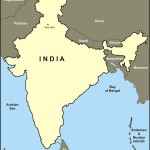Whereas in the Palestinian organisations, the “Kuniat” dies with the holder and the same “Kuniat” is not allotted to any other fighter, in the Markaz and the Lashkar, the “Kuniat” does not die with the holder. The same “Kuniat” is allotted to another fighter. It is not unusual to come across two individuals with the same or similar “Kuniats”.
Amir Saeed said: “˜The jehad in Kashmir would soon spread to entire India. Our Mujahideen would create three Pakistans in India.”
Bin Laden had reportedly contributed a large sum of money for the construction of a special guest house inside the Muridke complex. This guest house was initially built by him as a house for his stay during his visits to Pakistan, but, after 1992, he converted it into a guest house for his associates from Saudi Arabia and elsewhere visiting Pakistan.
It was reported that this guest house was also used as a hide-out for Ramzi Yousef, involved in the New York World Trade Centre explosion in February, 1993, and Mir Aimal Kansi, involved in the murder of two CIA officers outside their office in Langley, Washington DC, in January, 1993, before they were arrested by the Pakistani authorities and handed over to the Federal Bureau of Investigation of the US in the 1990s.
There are some distinguishing characteristics about the operational methods of the Lashkar militants. They do not shave or have a haircut and allow their beards and hair to grow long and are taught to employ extremely cruel methods such as beheading and disembowelling their victims from the security forces and non-Muslim communities. Like the fighters of many other jehadi organisations, they generally wear salwars, which do not cover the ankle.
| Editor’s Pick |
As regards ideology, the Markaz, an Ahle Hadith organisation of Wahabi orientation, was initially very close to Saudi Arabia, but seems to have developed differences with it because of its proximity to Osama bin Laden and of its contention that even Saudi Arabia does not have an ideal Islamic society. Its criticism of the stationing of US and other Western troops in Saudi Arabia also contributed to this. It describes the Hindus and Jews, in that order, as the main enemies of Islam and India and Israel as the main enemies of Pakistan. Its Amir is a strong opponent of Western-style democracy.
“¦”These jehadi groups cant function and survive without official patronage. Is there a single militant training centre in Pakistan which can operate without the consent of the Pakistan Army? All militant groups are created and run by Pakistans secret agencies.”
The Amir said in an interview to the Herald: “Democracy is among the menaces we inherited from an alien government. It is part of the system we are fighting against. Many of our brothers feel that they can establish an Islamic society by working within the system. They are mistaken. It is not possible to work within a democracy and establish an Islamic system. You just dirty your hands by dealing with it. If God gives us a chance, we will try to bring in the pure concept of an Islamic Caliphate.”
The News of Pakistan (November 23, 1997) reported as follows on the ideology and beliefs of the Markaz Amir as reflected during its annual conference of November, 1997: “The Markaz is trying to take advantage of the growing public discontent with the political system and widespread corruption. Using explicit references to the hardline Taliban in Afghanistan, it is making growing references to ending the democratic system in Pakistan. Prof Saeed calls for a jehad to turn Pakistan into a pure Islamic state.
“He rejects democracy saying that “the notion of the sovereignty of the people is anti-Islamic. Only Allah is sovereign.” The whole venue of the congregation was full of signboards with the slogan “Jamhooriat ka jawab, grenade and blast (the answer to democracy, grenade and blast).” Saeed was categorical in saying that his organisation had no immediate designs in Pakistan, even though the present system in Pakistan was not Islamic.
“He stated: ‘In fact, there is no Islamic government in the world. Not even in Saudi Arabia, where the system is closer to Islamic teaching, but still not fully Islamic.’ He expressed his happiness over the success of the Taliban in Afghanistan.
“He said his organisation’s main interest in Pakistan was to pick people and train them to wage jehad in countries where an un Islamic government was in power.”
Irfan Hussain, a Pakistani columnist, wrote: “For years, successive governments have been denying military support for Kashmiri militants while jehadi outfits have been openly collecting funds to buy arms and train infiltrators at camps established in Punjab and Azad Kashmir.”
The paper quoted him as saying as follows: “God has ordained every Muslim to fight until His rule is established. We have no option but to follow God’s order. We continue to support other Islamic organisations in the world. This is a very long battle.”
When the Markaz was started in 1987, it had a two-fold objective: to assist the Afghan Mujahideen and to rid Islam in Pakistan of what it projected as the corrupting influence of Hinduism. It continues to wage a sustained campaign against what it sees as the evil influence of sufism and Kashmiriyat. As it looks upon Kashmiriyat as the expression of the evil Hindu mind, many of its operations in J&K are directed against the Hindus.
Addressing the Lahore Press Club on February 18, 1996, Amir Saeed said: ‘The jehad in Kashmir would soon spread to entire India. Our Mujahideen would create three Pakistans in India.”
In an interview to the Takbeer of Pakistan (October 9, 1997), he said: “We feel that Kashmir should be liberated at the earliest. Thereafter, Indian Muslims should be aroused to rise in revolt against the Indian Union so that India gets disintegrated.”




